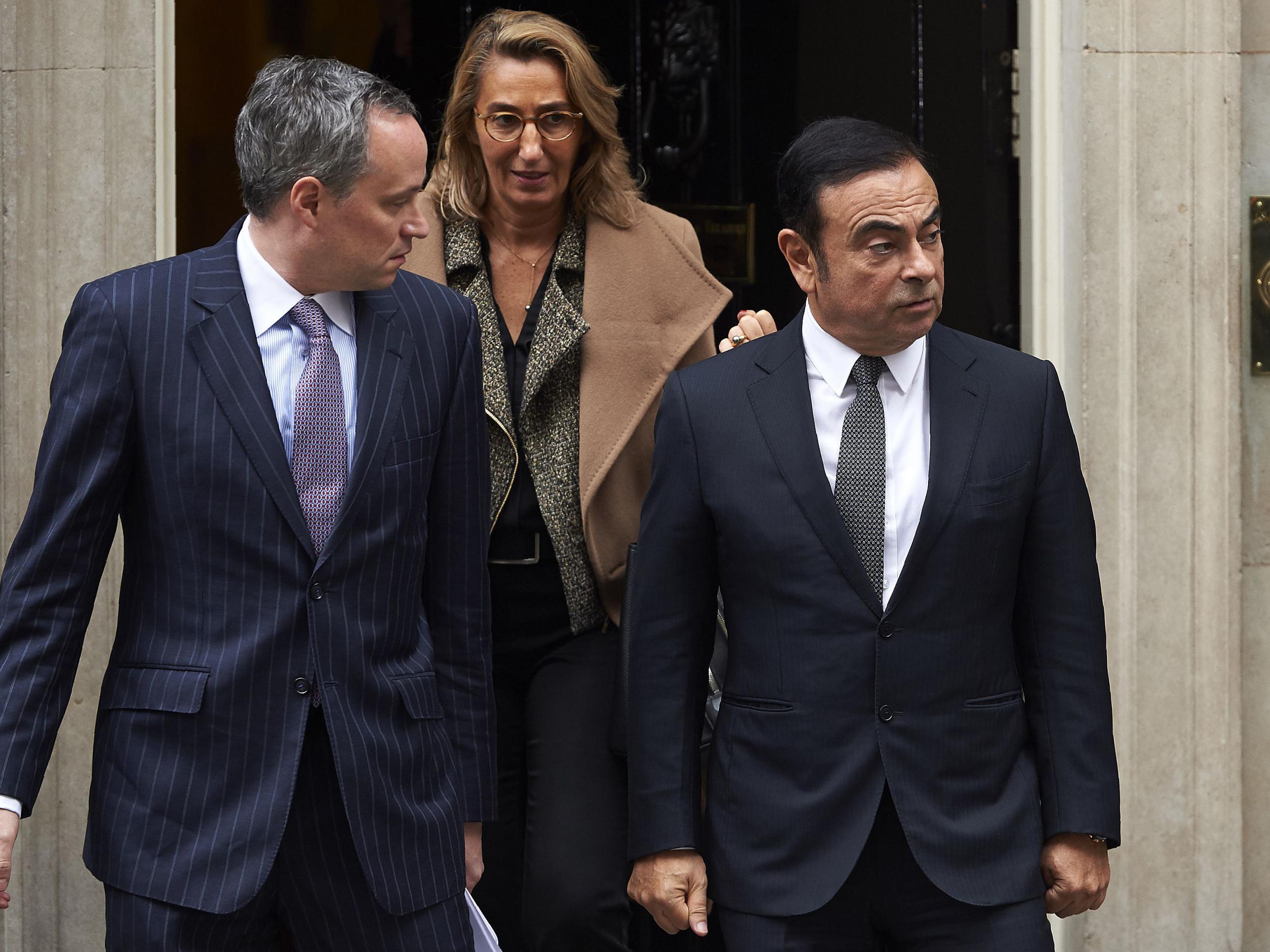Nissan Brexit deal could lead to 'colossal bill for the taxpayer', Nick Clegg warns
Greg Clark, the Business Secretary, disclosed details on Sunday surrounding the Japanese car giant’s decision to remain at its Sunderland plant

Revelations that Nissan was persuaded to remain in the UK after the Government promised it would seek continued tariff-free access to EU markets for British manufacturers has sparked concerns that such deals could cost the tax payer “colossal amounts of money”.
Greg Clark, the Business Secretary, disclosed details on Sunday surrounding the Japanese car giant’s decision to invest in the production of two new models at its Sunderland plant, which secured the future of 7,000 jobs in the UK's biggest car factory.
Speaking on the BBC's Andrew Marr Show, Mr Clark said he set out details of the Government's four-point approach to the automotive sector in a letter to Nissan chief executive Carlos Ghosn, which included commitments to continue to make funds available for skills and training, to encourage smaller firms in the supply chain to locate in the UK and to support research and development, as well as the pledge to keep the UK car industry competitive.
The revelations have sparked concerns about the financial implications of safeguarding the industry from the impact of Brexit.
Former Deputy Prime Minister Nick Clegg, who is to shadow both Cabinet ministers dealing with Brexit, wrote to Mr Clark warning that such deals may “cost the taxpayer colossal amounts of money”, the Guardian reports.
Although welcoming Nissan's decision to stay, Mr Clegg reportedly queried whether the guarantees were “part of a planned strategy with a desired endpoint or a one-off concession which shows those that shout the loudest get the best deal from ministers”.
“Any assurances given about our future relationship with the customs union and the single market would go to the very heart of the Brexit negotiations, revealing whether the Government is intending to stay within either, or whether you intend to negotiate a patchwork of carve-outs, subsidies and sectoral arrangements, which will create winners and losers and may cost the taxpayer colossal amounts of money,” he reportedly said to Mr Clark in the correspondence.
Asked whether tariffs would disadvantage Nissan on Sunday, the Business Secretary, responded: “Of course if there were tariffs in a market which is very international – there’s a lot of trade from the continent of Europe to the UK so the supply chain is integrated.
“So one of the assurances I was able to give is that our intention, our negotiating remit when it comes to the discussions with our European partners is to have a constructive and civilised dialogue to look for the common interest.
“So what I said is that our objective would be to ensure that we have continued access to the markets in Europe and vice versa without tariffs and without bureaucratic impediments. And that is how we will approach those negotiations”
It comes after the Government faced intense pressure to disclose assurances provided to the Japanese car giant behind the scenes at Downing Street earlier this week.
Appearing moments after Mr Clark on ITV, the shadow Brexit secretary Keir Starmer, attacked the Government’s lack of transparency and demanded the correspondence between the Business Secretary and the Japanese company be made public.
But when told about Mr Clark’s announcement, he appeared irritated, adding: “To learn of this in an interview this morning is the wrong way to prepare for these negotiations.”
On Saturday John McDonnell, the shadow Chancellor, welcomed the decision by Nissan to back the “hard work and dedication” of the workforce at the Sunderland plant. “But there are other plants in the car industry whose workers will be holding their breath hoping that their jobs are also safe following the Tories’ shambolic handling of Brexit.”
Work and Pensions Secretary Damian Green has warned business leaders to "assume nothing" about whether the UK will remain in the EU customs union after Brexit, following Mr Clark’s comments.
Pressed on whether the UK would remain in the customs union, Mr Green told BBC Radio 4's Today programme: "Assume nothing at the moment because, I think, a lot of this discussion tends to be fairly simple, fairly black and white."
Mr Green said Nissan had decided to boost UK production because the Government convinced it the country will remain competitive after Brexit.
"We are able to tell Nissan our stance towards both the renegotiations and, perhaps, even more importantly, our stance towards making Britain a great place to do business for the years ahead, in a way that clearly satisfied them, that they want to continue to be the biggest car maker in this country.
"They know the negotiation we are going to have with the EU will leave Britain open for business, will leave us competitive," he said.

Mr Clark – who acknowledged World Trade Organisation rules meant the Government could not offer to compensate Nissan if tariffs were imposed – confirmed he had set out the Government’s approach in a letter to Mr Ghosn. It included commitments to continue to make funds available for skills and training, to "bring home" elements of the supply chain which had migrated overseas, to support research and development, and to keep the UK car industry competitive.
“It is simply not possible to compensate for any future risks so the intention of keeping the sector competitive was important,” he said.
“In the motor industry we have a very long track record of investment, in skills in innovations and research and development. But these things are independently reviewed, we can't guarantee them. I hope that they [Nissan] will succeed. They have to apply as companies in the sector have to do.”
Additional reporting by Press Association
Join our commenting forum
Join thought-provoking conversations, follow other Independent readers and see their replies
Comments